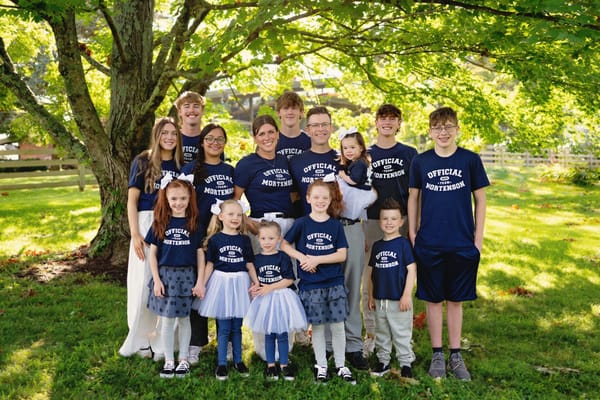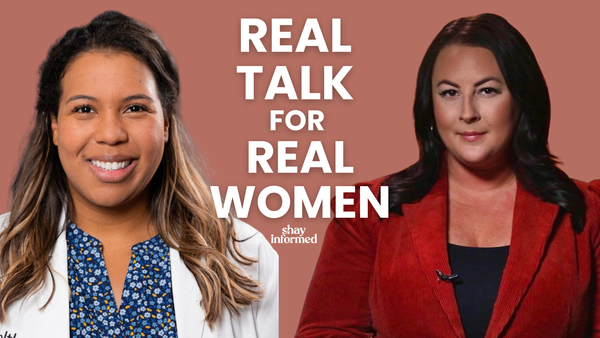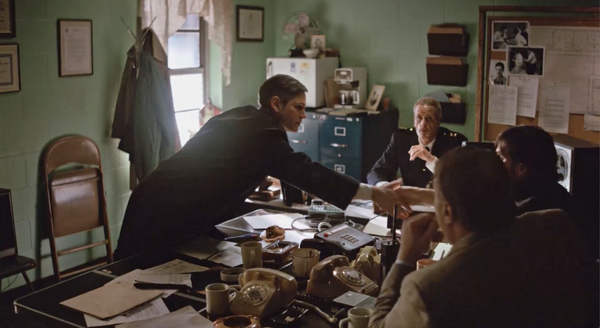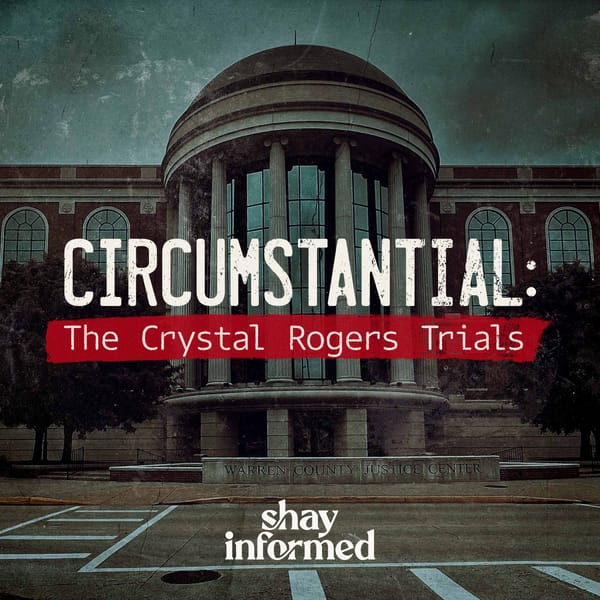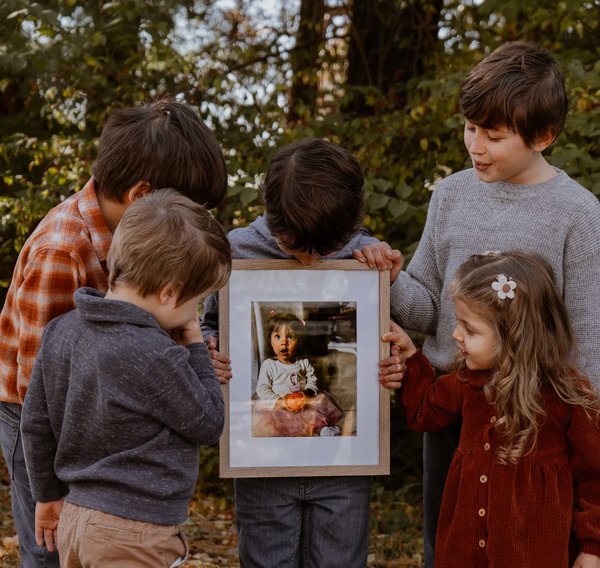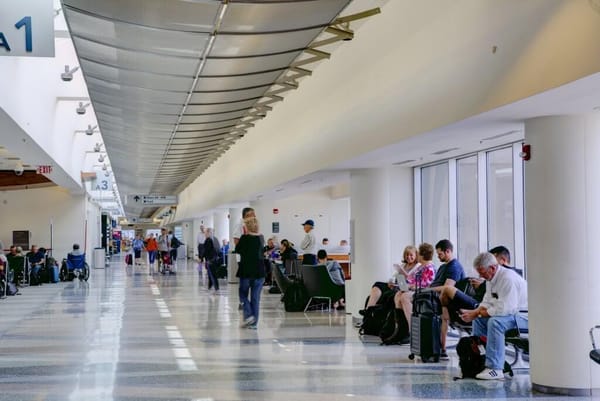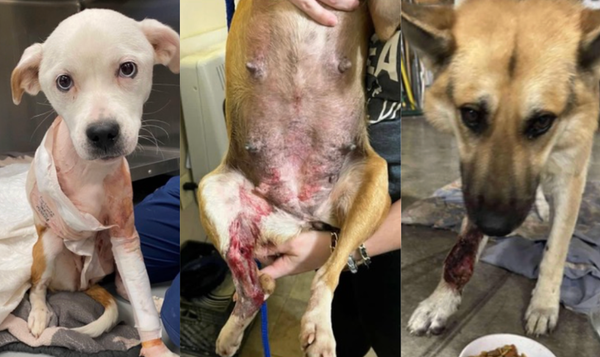Fighting for her life shouldn't mean fighting insurance companies
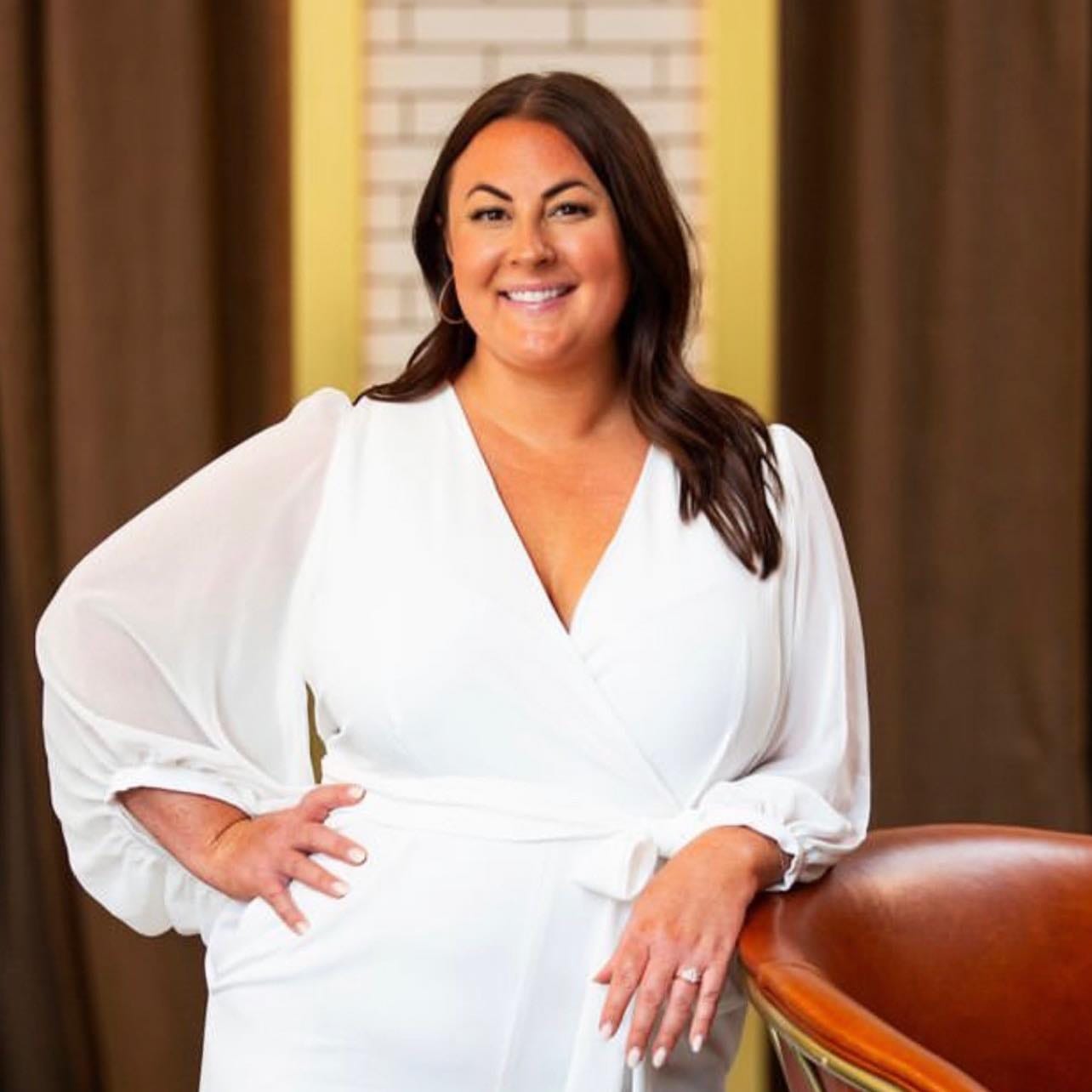



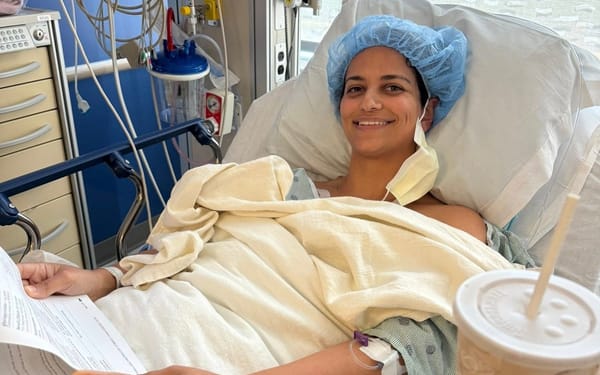
Kinsey's story exposes how broken our healthcare system has become- and how in this case, Louisville's love made all the difference.
"I'm Shay McAlister, and this is Shay Informed: an independent, ad-free platform dedicated to honest journalism with compassion and clarity.
Are you new here? Sign up for the free newsletter or subscribe to support our mission.
On her 29th birthday, Kinsey Woodson received the best gift she could have imagined: news that her sister's bone marrow cells had finally started to engraft in her body, marking a crucial milestone in her fight against aplastic anemia.
"I cannot believe that happened today," Kinsey said from her hospital room at Johns Hopkins in Baltimore, where she's been recovering from a bone marrow transplant. "I didn't even want to hope for that because I just thought I would be disappointed."
The birthday celebration was modest- her mother Karen brought cake from Whole Foods, delivered to the car while wearing masks, then carried the half-mile trek from their temporary housing to Kinsey's hospital room, where her nurses sang to her and threw confetti around her bed. But the news that her white blood cell count had climbed from zero to 250 was everything.
"I said, 'Is there a catch?' And the doctor said, 'There's no catch,'" Kinsey recalled, smiling despite her obvious exhaustion.
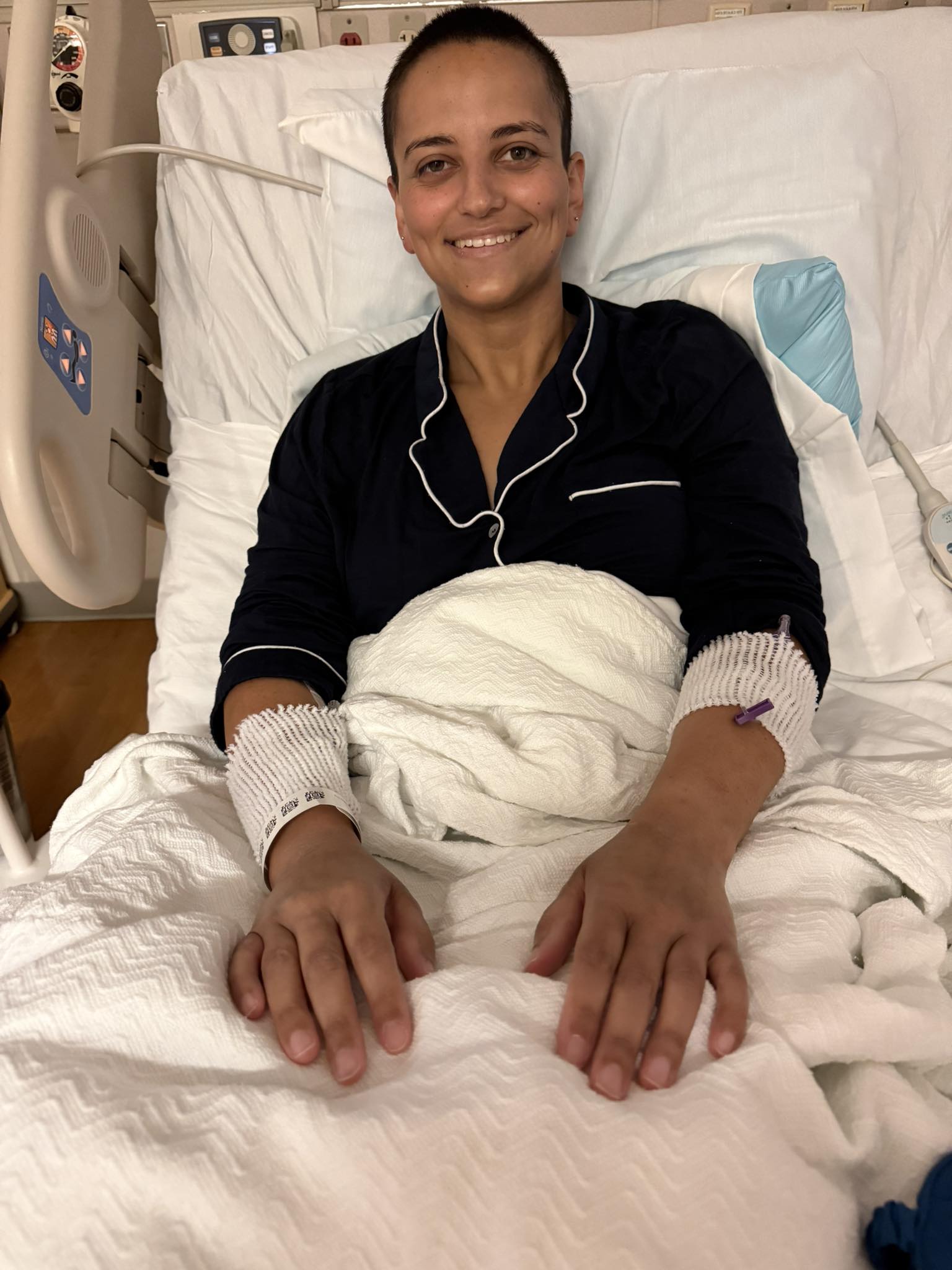
Kinsey's story began when she was five years old, a spirited child who suddenly started falling asleep earlier and more easily- completely unlike her usual energetic self. Little red dots called petechiae appeared all over her body, and tests revealed devastating news: severe aplastic anemia, a condition where the bone marrow fails to produce the blood cells needed to survive.
What followed was an extraordinary family decision. Kinsey's best chance at survival was with a bone marrow transplant, and her most likely match would be a sibling. Kinsey's younger sister Jillian wasn't a match, and her mother Karen had had a hysterectomy. So Karen's sister agreed to serve as a surrogate. Against long odds, the single embryo that took became a perfect match: Kinsey's sister, Teagan.
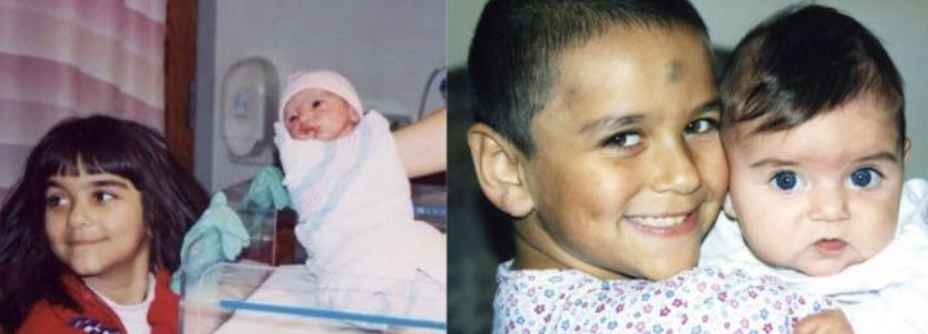
As 4-month-old Teagan prepared to save her big sister's life, Kinsey's blood cells stabilized. Miraculously, and for reasons that were never very clear, Kinsey's body started working the way it's supposed to.
For 22 years, she lived knowing she might need that transplant someday, but also hoping she never would. She played field hockey in high school, she went to Stanford, got married last June, and tried to live as normally as possible while managing the constant risk of infection, bleeding, or worse. "You fall off your bike, you scratch your knee- I fall off, I have a brain bleed, and die", her mom explained on her behalf.

"It feels like living in Russian Roulette," Kinsey said. "Something is going to happen eventually that can kill you, but you just don't know exactly when that's going to happen or how."
Earlier this year, as Kinsey was preparing for the next stage of life- parenthood- tests revealed her blood cell counts had dropped to dangerous levels, and not only was it not safe to carry a baby, her life was at risk.
Her family moved quickly- with Kinsey and Karen relocating to Baltimore last month for four months of treatment. Teagan and her boyfriend also made the trip, as Teagan had surgery preps and recovery of her own.
The transplant itself went well, but severe nausea made recovery nearly unbearable.
Her doctor prescribed a specialized patch medication that would provide steady, 24-hour relief- but on a Friday evening, Kinsey's insurance company denied coverage.
"It was literally five o'clock on Friday," Karen recalled. At the pharmacy, they learned the out-of-pocket cost: $711.72 per week. Kinsey, weakened from high-dose chemotherapy, was ready to walk away. "I'm okay, Mom, it's okay," she said.
But Karen wasn't okay with watching her daughter suffer needlessly. "She had a horrible night," Karen said. "I kicked myself over and over- I should have just bought the patch."
What followed was a ten-day battle with the insurance system while Kinsey endured some of the sickest days of her life, including a five-day bout with sepsis. Despite having what she called great insurance, she was suffering at the hands of a denial letter that read "there is no medical reason that you are required to take this product."

"You just hope that when there's something that can help you and makes you feel better, it's one less thing you have to deal with," Kinsey said, "you hope that that's easy to get, and if your doctor prescribes it, that it's going to be okay."
The insurance company eventually approved the medication after ten days, but only after Kinsey had high-level advocates making calls on her behalf- something most patients don't have access to.
"I don't know another patient who's gotten this approved other than me," Kinsey said, having spoken with other bone marrow transplant patients at Johns Hopkins. "In every case, it was either denied or approved after a month, after you're through the most intense part of the treatment."
The standard process requires patients to "fail" three other medications first, meaning three to four additional weeks of suffering during the most vulnerable period of treatment. This practice, known as "step therapy" or what patient advocates call "fail first" policies, is increasingly common.
"It's very common," said Caitlin Donovan, Senior Director at the Patient Advocate Foundation, a national nonprofit that provides free case management for Americans with chronic conditions. "Sometimes nowadays, especially with AI, claims are being denied in far less than a second, and it has to do with keywords and efficiency and profit over lives."
The insurance company's reasoning, Donovan explained, focuses narrowly on survival rather than quality of life, "They're just thinking- does this help her survive the cancer, not quality of life, not can she move, can she better thrive under this other medication?"
For Kinsey, it wasn't about thriving better, but instead thriving at all. She spent three days so weak she struggled to sit, speak, or swallow.
"The thought that patients who don't necessarily have a full-time caregiver- and even caregivers shouldn't have to be fighting this- but the fact that a patient who might have a 104-degree fever and a bacterial infection and sepsis should be left to fight for a drug that they need at 5 p.m. on a Friday, that is just not realistic and completely unfair," Karen said.
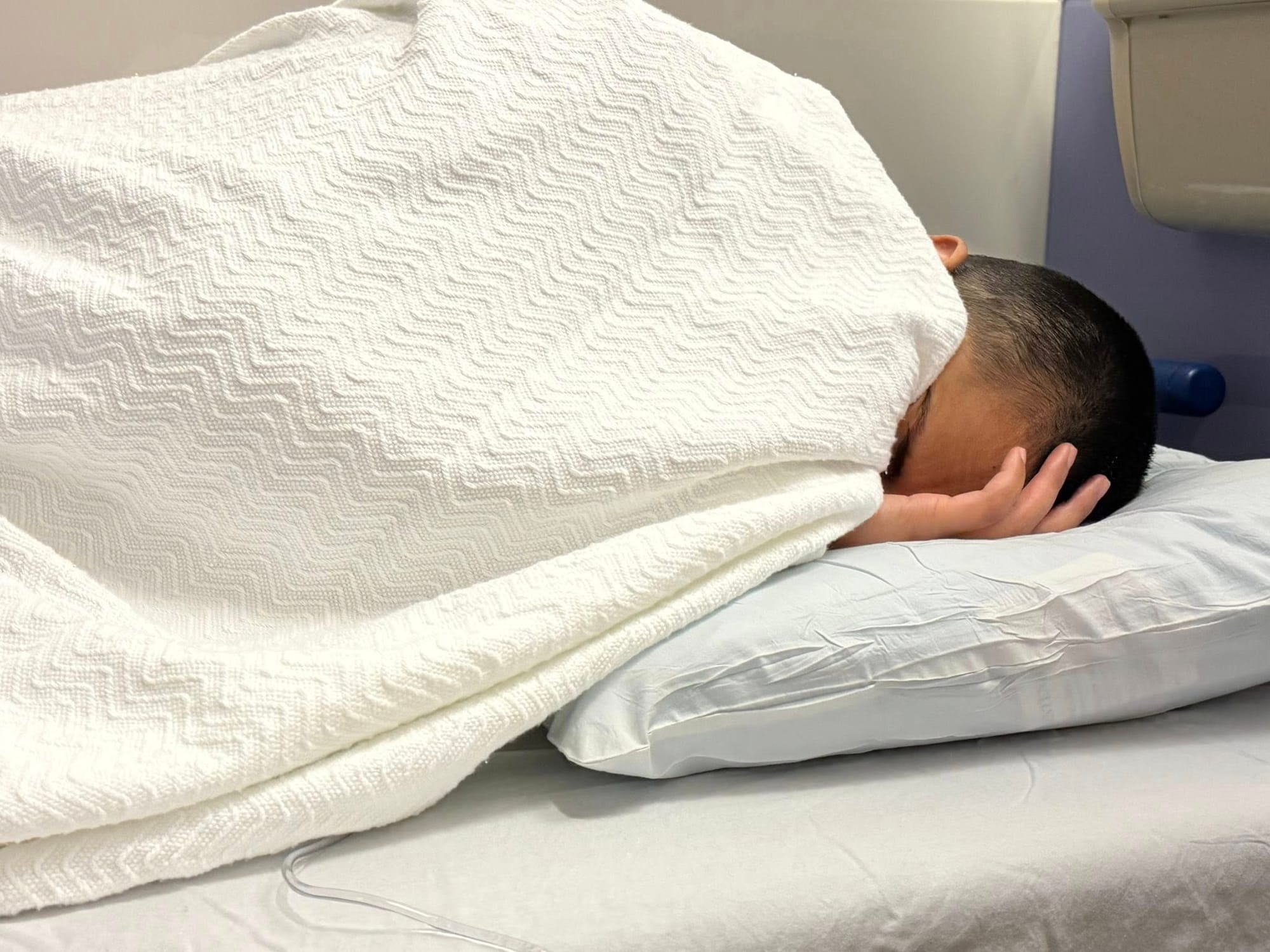
Kinsey's family has faced $460,000 in medical debt over the course of her life, despite always having what she calls "great insurance." This year alone, she and her husband have paid $30,000 out of pocket for medical expenses. To preserve their fertility before the transplant- knowing the radiation would likely destroy it-Kinsey and her husband drained their entire retirement savings from their early careers, spending about $20,000 on IVF to freeze six embryos.
"It felt so unfair," Kinsey said. "He's worked since he was 17, never not had a job since then, and just knowing that he was doing this for us, but also for me because of this illness."
The financial strain extends beyond their family. Kinsey learned that medical expenses are the number one type of GoFundMe campaign, and medical debt is the leading cause of bankruptcy in America. According to the Patient Advocate Foundation, which helps Americans navigate healthcare challenges, the system is "getting more complicated every day, and it started out pretty complicated", Donovan said.
"It is very, very difficult for any average person to afford their medical bills, let alone understand the system and navigate it if something goes wrong," she explained.
The foundation fields questions about insurance denials and appeals constantly- a problem that has intensified as artificial intelligence is increasingly used to process claims. For families like Kinsey's, the result is devastating uncertainty during the most vulnerable moments of their lives.
"It's so much bigger than me, and it's so much bigger than any one company," she emphasized. "It's the whole system of prior authorization and these middlemen in between the doctors and the patient that mean that the doctors don't get the final say in many cases."
But Kinsey and her family are loved... very, very loved.
The Louisville community's response to Kinsey's story has been overwhelming. The GoFundMe, which started modestly, grew as friends, family, former teachers, and even strangers contributed.
"Louisville is a really big village, and never has that been so true," Kinsey said. "Some of my friends from elementary, middle school, high school, and college, and their families- it just feels like we have such a unique and tight-knit community."
When Kinsey was too sick to even look at her phone for three days, running high fevers from sepsis, she had no idea about the outpouring of support. When she finally learned the GoFundMe had almost reached $50,000, "she started crying, and we just cried together," Karen said.
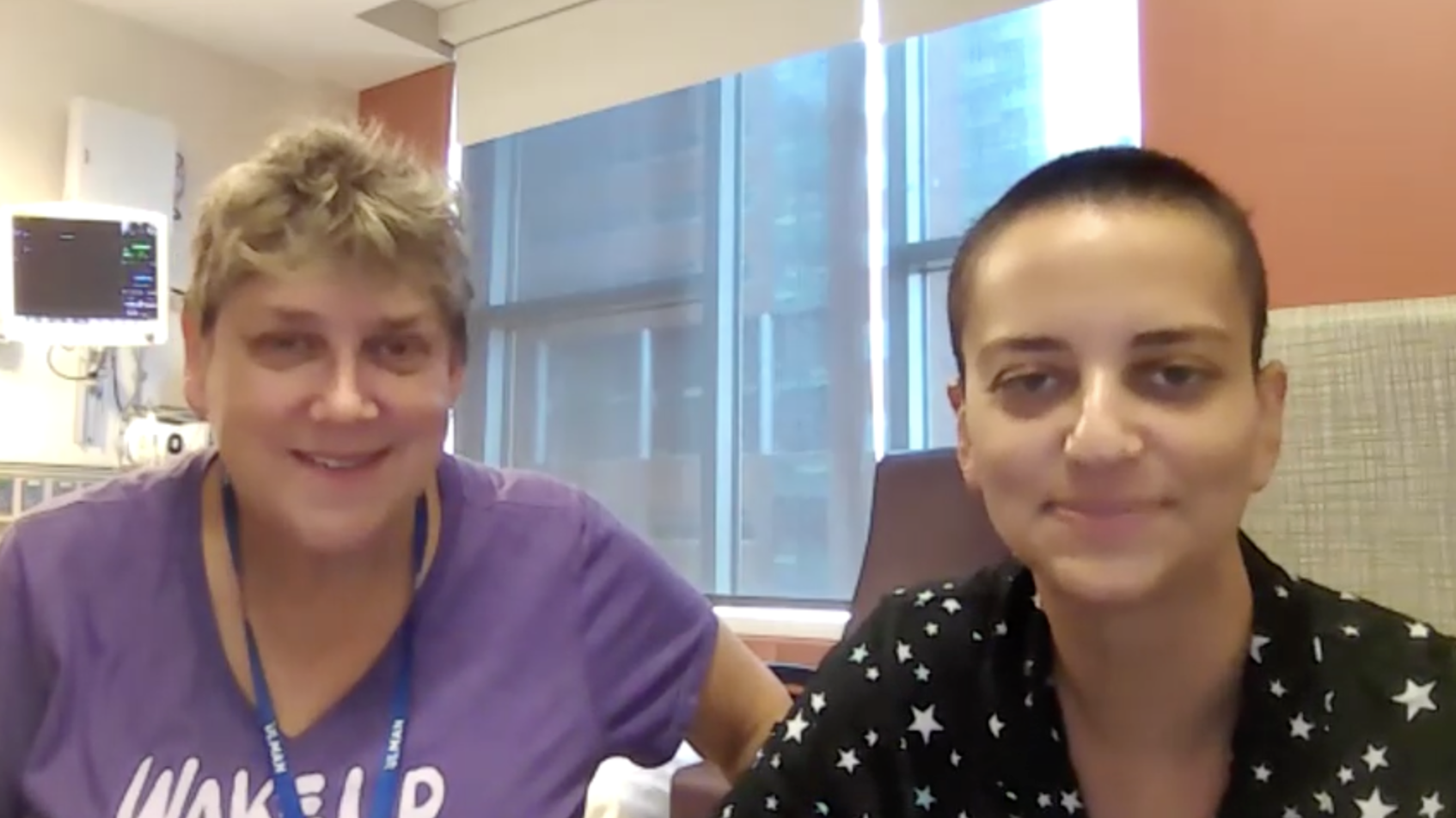
Kinsey faces 115 days of complete isolation before she can receive her first vaccines, starting her immune system from scratch like an infant. She won't be fully vaccinated until October 2027- 26 months from now. She won't see her husband for at least two or three more months, and large crowds will be off-limits for years.
But with her cells finally engrafting and the financial burden lifted by community support, she can focus on healing and celebrate the victories when they come.
"To be able to celebrate that milestone without feeling this weight on my shoulders of just the incredible financial strain," she said of her birthday news. "It allows me to celebrate the positives when they do happen."
Karen, who has been by Kinsey's side through everything while also dealing with her own wife's recent stage-four lung cancer diagnosis, sees her daughter's resilience daily. In the nine days before transplant, Kinsey walked a 5K in the hospital multiple days in a row, wheeling a bag of chemotherapy with her. Today, on her birthday, weak as she is, she told her doctor she was going to get out of the room and walk.
"The resilience and the determination and the positive attitude, even when she was super sick, it's incredible," Karen said. "She's the toughest person I know."
For Kinsey, surviving this ordeal is just the beginning. She knows her story represents the experience of countless others who don't have the same support system, insurance coverage, or advocates.
"I'm always thinking about, what is this like for the average person going through it, or the person with the least help going through it?" she said. "It's not enough for me that my medicine got approved eventually, if other people do not necessarily have that access and are going to continue to get denied."
As she continues her recovery in Baltimore, Kinsey is already looking ahead to returning home to Louisville and resuming her advocacy work.
"I know this is just giving her even more passion than she already had toward that battle," Karen said of her daughter's determination to fight for healthcare reform.
For now, though, the focus remains on healing. The engraftment is just the beginning of a long journey, but it's the crucial first step toward the freedom Kinsey has dreamed of- a life lived without the constant fear that has shadowed her for 22 years.
"I wanted to have that freedom, to live the rest of my life with less of that fear," she said. And on her 27th birthday, surrounded by the love of her community, even from an isolation room hundreds of miles from home, that freedom finally seems within reach.
You can watch my interview with Kinsey and her mom, Karen, here!
Like what you see? Learn more about Shay Informed here! This is honest journalism with compassion and clarity.
